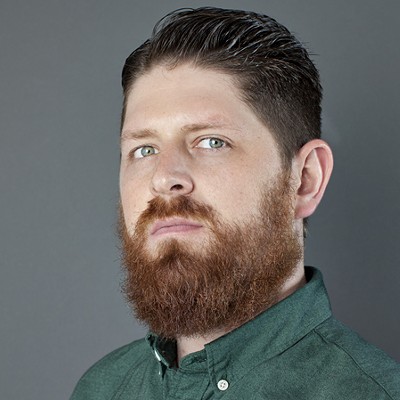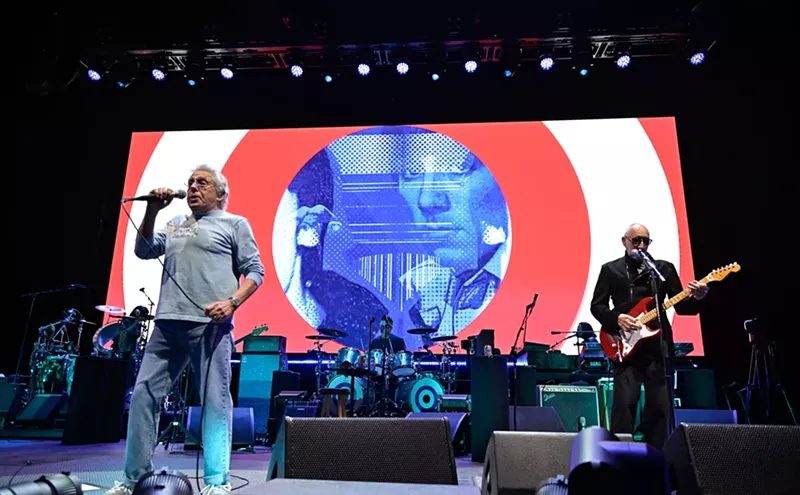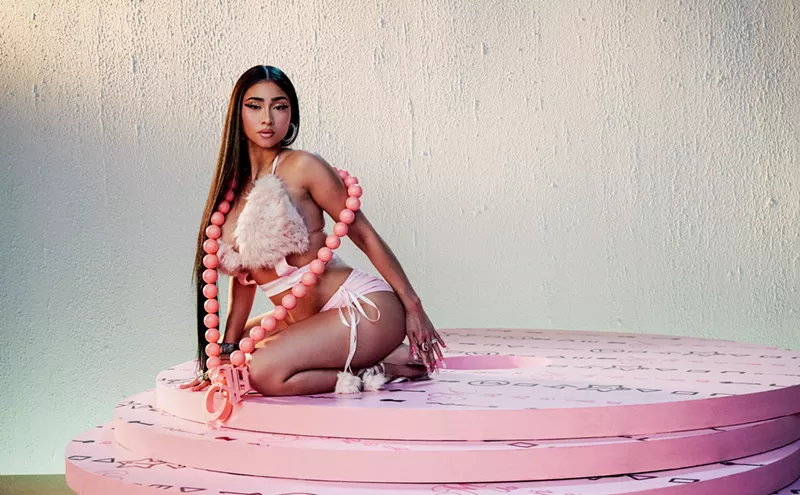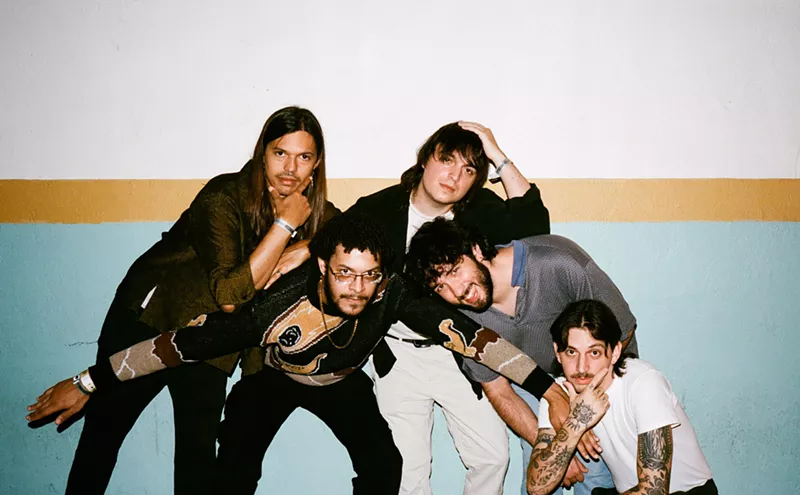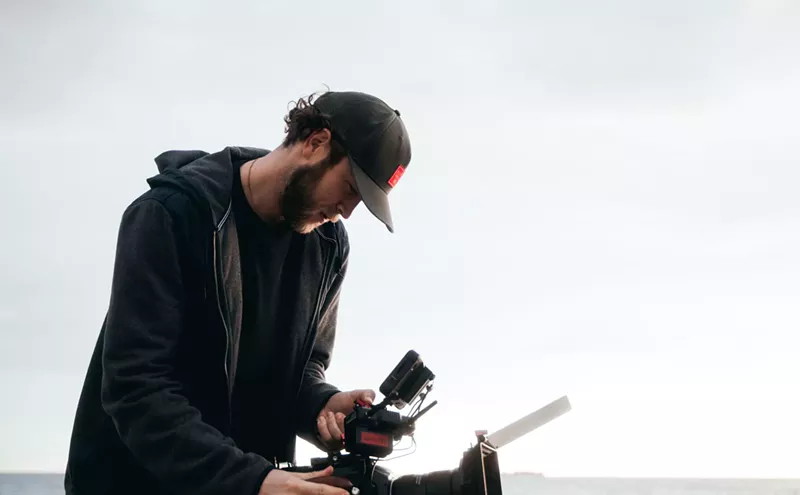The great dance clubs of contemporary Western Civilization were built for drugged-up 20-year-old kids who can party all night, sleep 45 minutes, wake up at 6 a.m., go to work, punch out, start drinking on an empty stomach in the early evening, and then slip right back into manic dancing as soon as the sun goes down.
So what happens when a dance-pop DJ turns 32? Well, in the case of Junior Boys' Jeremy Greenspan, you call up your buddy and bandmate Matt Didemus, lock yourself in the studio, and confront a looming middle-age crisis by recording an album called It's All True that's about aging, anxiety, and the search for authenticity.
Last week, Crossfade called Greenspan to talk out some of that heavy shit -- not to mention the uncertain future of Junior Boys.
Crossfade: Junior Boys' tracks have always had a certain kind of complexity and pop polish. Were you music-obsessed as a teen?
Jeremy Greenspan: Yeah. Basically, as soon as I became a teenager, I got into industrial goth and eventually Detroit techno.
For me, that sort of secret underground world, detached from the mainstream, was a big part of what got me into music. It defines you, especially when you're at that impressionable age when music means everything and you define yourself according to the music.
You look back on that time as being kind of stupid. Like, "Maybe I shouldn't have taken it that seriously." [Laughs] But at the time, you're young and hormonal and trying to figure out who you are.
Were you the kind of dude who was out at parties all the time? Or were you sequestered in your bedroom?
I'd say a little bit of both. I was never very comfortable at parties. But it was a different time and era. It was during the rave generation when you could be isolated at a party, because being at a party wasn't about being social or stylish. It was about being deep into music. And I kind of regret that those days are over.
For the most part, though, I was a bedroom kind of guy. I was never big into the culture of partying. I was never too big into drugs. And I was definitely not into being fashionable. I was into music.
What's the significant difference between that era's dance culture and today's scene?
Back then, everything was about the experience of listening to music. All the DJs were these unassuming, usually fat guys who'd be sitting there playing vinyl and not putting on any kind of show. Sometimes you wouldn't even know they were there.
You know, I grew up near Detroit. So a lot of what I heard at parties was minimal Detroit techno. It was really abstract music that seemed to come from the future. And all you're supposed to do is just listen to it intensely, because it's supersubtle.
And if you've done drugs or whatever, you get into this really weird headspace where you don't care what you look like as you're dancing. You don't care what you're wearing. So people are wearing ridiculously stupid things. You're just sort of feeling it.
Now, I think club culture is all about the DJ putting on some stupid show. He's dancing around. He's a big star. And everyone's wondering, "How much money is he making? Is he gonna have an afterparty with champagne? And who's getting bottle service?" All that kind of bullshit. And it's not only different, it's actually antithetical to what dance music was for me. Rave was my generation's punk.
As you get older, do you notice your audience getting younger?
I'm definitely excited if we have younger fans, like teenagers and people in their early 20s. But to be perfectly honest, I don't feel like I make music for them.
I'm 32. And I don't want to come off as some guy pretending to hold on to something. I'm not 18 now. I don't know what it's like to be 18 now. And I don't want to pretend to be 18 now.
That doesn't mean that I don't want to make music that's relevant for 18 year olds. I want to make stuff that's universally relevant. But I'm not after the youth.
You've described earlier Junior Boys stuff as being about "adolescent confusion" and the new album, It's All True, as being about "middle-aged confusion." What's the difference between those two states?
Well, growing older is strange. I'm not that old, I suppose. But still, there are these two conflicting things happening.
On the one hand, as you get older, your youth is slipping away and you start forgetting what it's like to be 15. All those seminal moments just start disappearing. But at the same time, you never quite feel like you're old. You never feel like you've made it. You never feel like, "I am a man now!" [Laughs] You still feel like the same person. You still have the same anxieties. You're still afraid of losing your parents and all of the other shit that terrifies you as a kid.
What marked that transition to adulthood? Was it simply a matter of hitting some landmark age?
I think it was a host of experiences. You know, making music and touring for a certain amount of time. And then the experience of our last record [Begone Dull Care] being a bit of a drag to promote. And I went though a couple of traumatic personal events, the kind of things that happen to most people in their life. All of that kind of stuff cumulatively changes you.
You just get to a point where you know that you're a different person than you were ten years ago. But you don't know exactly why or how. I would even say that going from record to record is the equivalent of your face changing. You see yourself every day, so you don't notice anything. Then someone sees you and they're like, "Holy shit! You're getting all bald!" [Laughs] Of course, though, you don't notice because you are with you all the time.
At times, It's All True seems to push the Junior Boys sound to its limits, especially on "Banana Ripple." And you know, when Brian Eno got to a certain point in his career and life, he decided to ditch art-rock and take up ambient music. Do you ever feel like veering drastically away from dance pop?
Well, I don't necessarily know the future of the band. But I definitely know that if there are going to be more Junior Boys records, they would have to be drastically different. I feel as though our four albums work together as a whole. And at this point, I kinda feel like I don't want to fuck with it.
I'm very aware of musicians, who for the sake of career or money, keep a thing going and ruin it. It's like seeing Ozzy Osbourne now. You remember how great Sabbath was. But you're like, "God, this guy's fucking embarrassing." That's every musician's worst nightmare.
So there is that sense of wanting to leave this thing alone. But I don't know what that means. I do know that my next musical projects aren't going to be Junior Boys. But I'm certainly not saying we're done. I'm just going to work on other projects, release them, and see where they go. And then I'll come back to Junior Boys at some point if I feel like it.
Junior Boys. Thursday, October 6. Bardot, 3456 N. Miami Ave., Miami. The party starts at 10 p.m. and tickets cost $25 to $35 via bardot.showclix.com. Call 305-576-7750 or visit bardotmiami.com.
Follow Crossfade on Facebook and Twitter @Crossfade_SFL.


